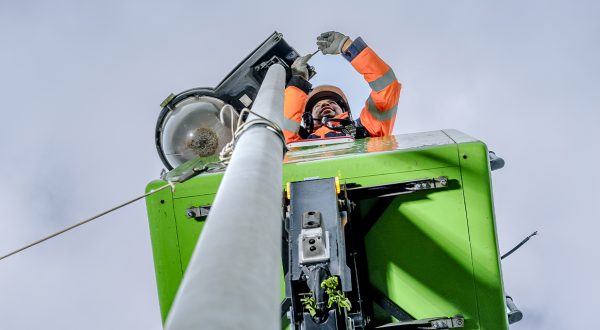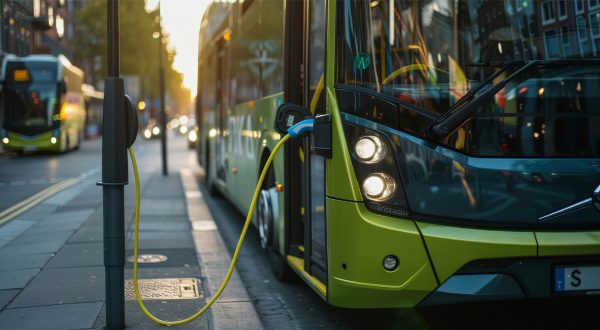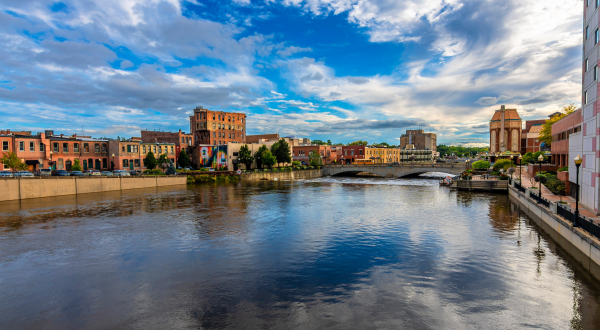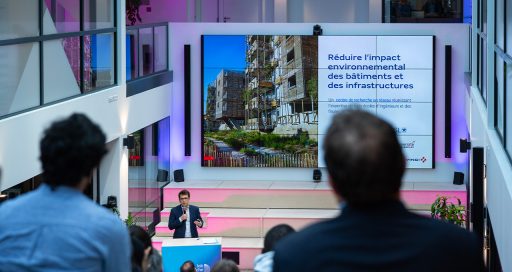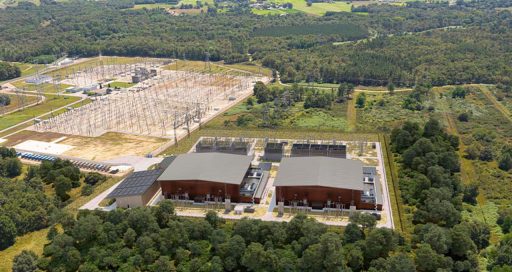Montreal invests in sustainable transport as it seeks a greener way of life
Reading time: 5 min
The heavily congested city of Montreal in Quebec is in the process of building a 67km fully electric metro line. The project, which represents a substantial investment, is primarily aimed at addressing environmental concerns.
![]()
The REM (Réseau express métropolitain) is the biggest public transport project to be undertaken in Quebec in half a century. By the end of 2022, this 100% automated electric light rail metro will supplement Montreal’s metro network, inaugurated in 1966, serving a wider area of the Canadian city.
The new line, with its 26 stations, will span the Greater Montreal area across 67km. It will run below ground, at ground level and above ground at an average speed in motion of 51km/h, reaching a maximum speed of 100km/h on some stretches.
The first trains are expected to start operating in December 2022 (the project is six months behind) and the rest of the network will gradually be put into service in 2023 and 2024. More than 200 cars will be launched, with four-car trains running at peak hours (offering capacity for 600 people in total) and two-car trains at off-peak hours.
The Quebec authorities opted for a light rail transit system based on the Alstom Metropolis, which is already in use in Paris, Shanghai, São Paulo, Dubai and Sydney. But in a city like Montreal, which experiences snowfall and extremely low temperatures every winter, operating a predominantly outdoor transportation system poses an additional challenge.
As a result, the car pantographs have been equipped with scrapers to clear accumulations of ice off the catenary, and locomotives have been fitted with snowploughs.
The electric metro will reduce greenhouse gas emissions by 680,000 tonnes over 25 years of operation.
A huge electrical engineering project
This large-scale project involves a number of logistical, operational and technical challenges. “In many places, we’re working right in the middle of an urban environment. So we need to ensure the safety and comfort of residents and enable them to continue with their daily lives,” says Wassim Gamaoun, Construction Lead – Track & Systems at NouvLR, the consortium of five companies (SNC-Lavalin, Dragados Canada, Groupe Aecon Québec ltée, Pomerleau and EBC) set up to manage the engineering and construction for REM.
A further challenge involved coordinating the large number of players and operators coming together each day at the numerous work sites. “We need to plan carefully and clearly define our working areas and needs on the tracks so as to avoid time losses and minimise the risk of accidents,” notes Denis Vaugeois, transport manager at Transelec Common Inc.
This VINCI Energies business unit was appointed by the NouvLR consortium to carry out a package of services including the installation and handling of 116,430m of cable conduits in ballast; the supply and installation on raised concrete structures and in substation service spaces of 4,091m of tray systems for the 25kV medium voltage cables; and the laying and installation of cables alongside the track, on catenary poles and within supply stations, rectifier substations, train stations, etc.
“Since we started working on the project in November 2019, we’ve signed 14 contracts worth a total of over Can$100 million. And there are a lot more contracts to come,” says Denis Vaugeois.
![]()
Traffic congestion
For the local authorities, the $6.5 billion investment in the REM meets environmental, economic and social needs. Montreal, the main city in a country that saw the number of registered cars increase by around 50,000 in 2020 compared with 2019, is known for its high levels of traffic congestion. A Montrealer driver is said to spend an average of more than 145 hours per year stuck in traffic jams.
This road congestion has significant economic implications. Annual financial losses caused by absenteeism and traffic-related delivery delays amount to more than $4 billion for Greater Montreal alone.
Moreover, the Quebec government had to allocate $3.2 billion in 2020 to refurbish road infrastructure that had been severely impacted by soaring traffic levels. And finally, road congestion is a real headache for employers at a time when there’s a major shortage of staff in Quebec.
However, the REM seeks primarily to address environmental concerns. All-electric, it should help reduce greenhouse gas (GHG) emissions by 680,000 tonnes over 25 years of operation. To add value to and revitalise the agricultural land located around the Rive-Sud terminal station, an agricultural land trust will be set up in partnership with the “Union des producteurs agricoles”, a professional farmers’ union, and the “Communauté métropolitaine de Montréal”, the Montreal Metropolitan Community.
And in order to offset the GHG emissions produced during construction, a partnership has been put in place with the Earth Day organisation and the 375,000 trees programme with the aim of planting 250,000 trees. Lastly, agreements have been forged with sustainable mobility partners (car-sharing, carpooling, electric taxi services, bikes) to diversify travel options between home and the station or between the station and the workplace.
18/07/2022
